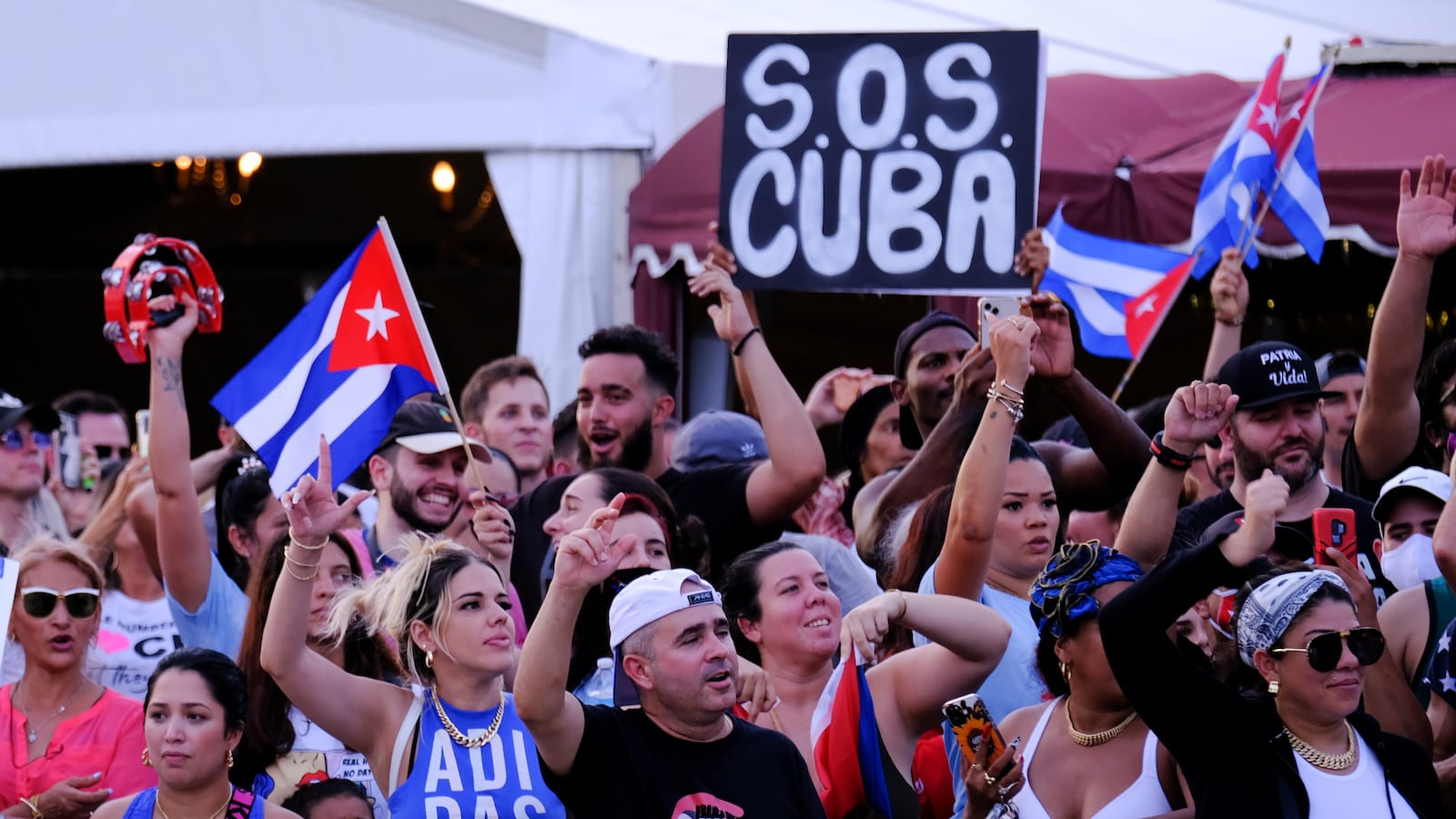Cuban protesters and dissidents are still counting up the number of people arrested in a regime crackdown after two days of protests on the island that marked a rare show of defiance against the communist government.
Legal-support group Cubalex suggested around 100 people were detained Sunday when Cuba saw its biggest street protests for years. On Monday further videos were posted on social media—despite efforts to shut down the internet—showing authorities arresting people and striking some with batons. At least a dozen more were reportedly detained.
Carlos Alberto told BBC News Mundo that demonstrators have gone into hiding. “A colleague of mine was arrested, they came to look for him at his home. I’m afraid the same thing could happen to me,” he said. “We weren’t doing anything bad, we’re just asking for freedom and with this attitude they’re showing what they are: a dictatorship.”
Thousands of protesters from Miami to Mexico City marched on Monday in honor of Cubans in Havana who have been demonstrating against shortages of food, medicine, and electricity. One group, armed with water and cans of food, even claimed they were setting off on a rented fishing boat from Miami to try to help. “We’re going to Havana. If we have to intervene, if we have to stay, we’ll do what we have to do,” Cuban American Santiago Rivero told the Miami Herald. The group said they were hoping to distract law enforcement from protesters, but insisted they were going unarmed.
Because unauthorized public gatherings are illegal, police were emboldened to use force during the arrests. Several accounts on social media showed police pepper-spraying and beating citizens who the Cuban president called “mercenaries” prompting the government to shut down the internet to control what information Cubans can access, including social media and messaging services like WhatsApp, which is commonly used across the island. Internet in Cuba is controlled by state-owned Etecsa, the island’s only provider, making it easier to not only control but to monitor usage.
President Miguel Díaz-Canel defended the decision to clamp down, calling those taking to the streets “counterrevolutionaries” in a four-hour address reminiscent of one of Fidel Castro’s long-winded opuses. In it, he blamed U.S. sanctions for the current strife, though many Cubans say it is their own government’s handling of its resources that keeps them oppressed.
His foreign minister later suggested those protesting were being financed and instigated by the United States, which is seen as a catalyst for the spiraling situation. President Joe Biden on Monday released a statement calling on the Cuban government to “hear their people and serve their needs.”
During President Obama’s two terms, Cuba started to prosper as tourism and trade opened up. But Donald Trump quickly slammed the door shut again, enacting tough sanctions and sending the already volatile Cuban economy into a tailspin. Just as people were starting to recover, the pandemic hit hard.
“We stand with the Cuban people and their clarion call for freedom and relief from the tragic grip of the pandemic and from the decades of repression and economic suffering to which they have been subjected by Cuba’s authoritarian regime,” Biden said in a statement, which prompted anger from the Cuban government.





